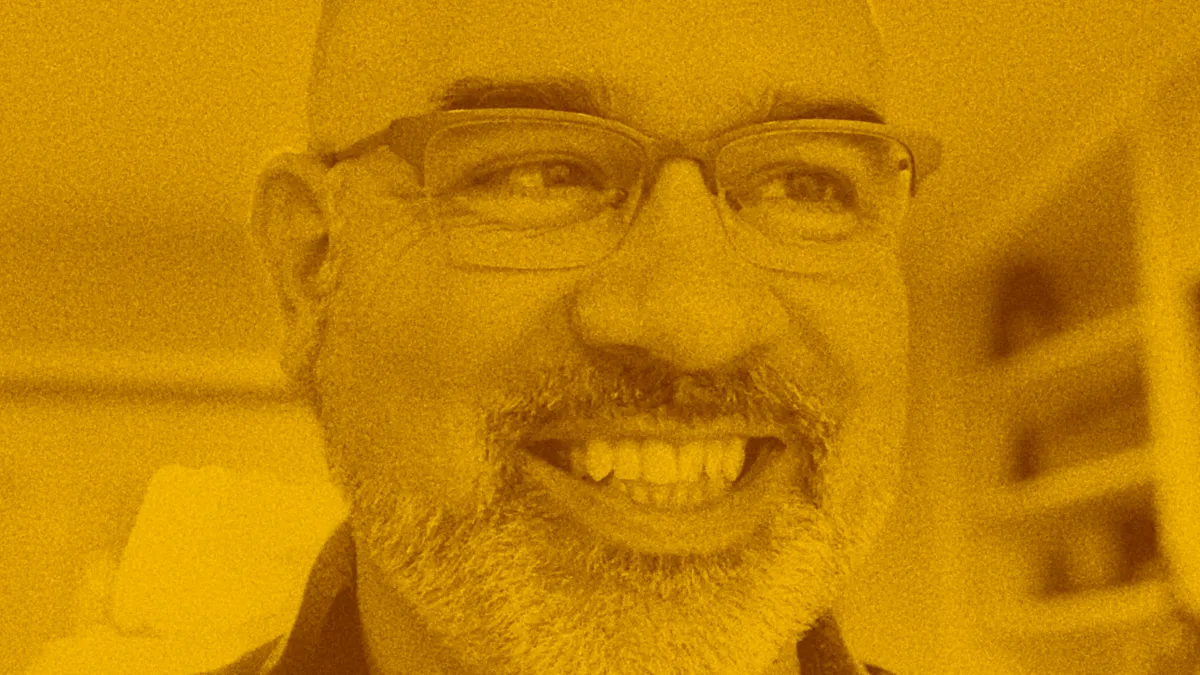Episode 147 of The Informed Life podcast features a conversation with Chris Risdon. Chris is a Senior Staff Designer at eBay, focused on AI Foundations. He’s co-author (alongside Patrick Quattlebaum) of Orchestrating Experiences, an excellent book on service design. I invited Chris on the show to discuss service design, especially in this post-pandemic, post-AI world.
We started by diving into what service design is. Chris sees it as a ‘lens’ to be applied to particular types of experiences:
The moment I want to apply a service design lens is when I see an experience takes place over time and space and across different channels and touchpoints.
Channels and touchpoints… these are terms many people aren’t familiar with, so I asked Chris to unpack them. As he put it,
channels, I still kinda consider the medium of delivery, right? A kiosk could be a channel, and a mobile phone could be a channel, but I don’t think there’s a rigid taxonomy to channels, in that sense…
… in my own sense-making, a touchpoint is really defined almost agnostic of the channel about the moment of meeting a specific need at a specific point in time.
My read: channels are mediums of delivery while touchpoints are particular uses for those mediums. It’s a subtle distinction, and one that most people won’t care about. But it matters when you realize that many complex experiences happen across several different mediums and systems.
It’s in these complex scenarios where service design helps, since the goal is creating a cohesive experience even as the user switches context. Once again, it’s a conversation focused on the design of an ecosystem rather than individual artifacts. (This is a theme for me; it’s no coincidence many guests in my podcast focus at this altitude.)
When speaking with practitioners about design at this level, I always wonder about two things:
- What are the central objects of design at this level?
- Who in the organization is responsible for calling these shots?
In Chris’s case, the answer for 1) seems to be maps of journeys across touchpoints. He described them at one point as “information object(s) wrapped in interactions” — a wonderful turn of phrase that suggests lots of possible directions.
The answer for 2) was less clear. Chris suggested that this function might live within product teams. But we acknowledged this might be a U.S.-based perspective; other regions might call these shots from different parts of the org.
One thing is clear, though: design is likely the wrong place for these holistic decisions to live, if for no other reason that design teams seldom have the authority to make decisions at this level. (Many internal design teams have painted themselves into mere production roles with no KPIs.)
Given that Chris works specifically with AI, I was curious about its impact on service design. He gave a two part answer that I found especially insightful:
- Technology in general serves as connecting tissue for creating cohesive experiences across touchpoints
- AI in particular can help shield users from complexity by moving it away from them to ‘under the hood’ systems
In this second case, he cited Tesler’s law with a vivid and easily understandable metaphor:
Metaphorically, if you think of a balloon, there’s always the same amount of air in there. You squeeze one part, and the other part gets bigger. And, in Tesler’s law, the idea is a system has some finite amount of complexity that you don’t necessarily get rid of; you move it around.
And AI has this promise of taking something that might be more complex, where you’re offloading some of the complexity that a human might have to deal with, and you’re now saying we’ve bolstered the technology now to take that complexity off. AI is like a layer of technology that can do more so that maybe the human can do less. And that could even just be in a quick interaction in a device, or it could be something much greater.
Boom! Another suggestive insight that opens lots of interesting directions — one of several I got from this conversation with Chris. I hope you get as much value from it as I did!
The Informed Life episode 147: Chris Risdon on Service Design
